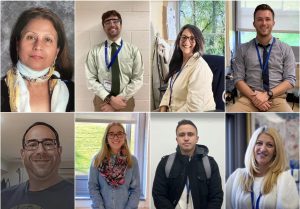Humanities, Renewed: Revisiting Academic Foundations
June 6, 2023
The 21st century is a STEM-centered world. As career prospects become increasingly dependent upon technology, students, specifically at schools like Great Neck South, are motivated to take additional math and science courses. The U.S. Bureau of Labor Statistics predicts a surge of 8.8% in the STEM fields. However, this growth does not come without a cost: decreased interest in the humanities.
Oxford Languages defines humanities as “learning or literature concerned with human culture, especially literature, history, art, music, and philosophy.” Humanities recalls history to remind society of its errors, relies upon and builds our cognitive thinking skills to write and revise our knowledge, and requires reflection for human growth and exploration. However, while there are many clear applications of STEM in today’s society (iPhones, AI, robotics), there is not as much obvious relevance for the humanities. South High continues to elevate STEM at the expense of the broader liberal arts. It is critical that South reinforce the relevance and significance of the humanities to encourage the groundwork for students to prosper in any field they pursue.
Humanities is relevant: it establishes students’ success in other fields. A student’s reading comprehension ability will define their capacity to understand complicated science journals. Their writing and analytical skills will determine their aptitude for writing scientific papers. German researchers Nadine Cruz Neri, Karin Guill, and Jan Retelsdorf found that scientific knowledge and comprehension were improved by one’s reading ability. Furthermore, in NY Times bestseller George Anders’ book You Can Do Anything: The Surprising Power of a ‘Useless’ Liberal Arts Education, Anders underscores the importance of humanities to develop critical thinking skills and the ability to evaluate information and arguments to make better decisions.
The importance of humanities is not lost on New York State, which mandates four years of English and Social Studies classes while only three years of math and science.
The curriculum should work with the spirit of the state’s interests, rather than deny students classes that will advance their foundational knowledge and creativity. Currently, most English electives are offered only to seniors, impeding other students’ aspirations of fostering their writing and analytical skills outside of their primary English class. Moreover, those seniors who take AP Literature are unlikely to be permitted to take English electives. Increasingly, the school only allows those who need English credit to take the electives because for most students, these courses are the only way to reach this graduation requirement. Once those courses reach capacity, that’s it.
This restriction on English classes stands in contrast to STEM courses, such as Science Research, which expands each year to accommodate student interest. Classes like Abstract Algebra and Multivariable Calculus alternate every other year for students who have completed BC Calculus. Meanwhile, AP European History has been demoted from a core subject to an elective and does not fulfill a graduation requirement. Similarly, the AP Music Theory class is limited to only being offered every other year. The growth of STEM should not come at the cost of humanities courses; both fields should grow equally.
The solution is not to undermine STEM, but to uplift the humanities. STEM looks to the future, while humanities provides the foundation for that future. If the school Board is to support English electives or Social Studies courses, many students would likely take them. Clubs that reinforce students’ love of social studies are largely supported: Model Congress has an overflowing number of members, and the History Club has more than quintupled its members in a few years. In response to the popularity of the sciences, the school has expanded the science research program to meet the number of students who would like to take it. Humanities should be treated the same.
Our school should encourage students to explore more in the liberal arts. They must place humanities-based classes on equal footing with their STEM counterparts. Meanwhile, students should advocate for this development. They should take a humanities-based course or experiment with a new art craft. They should create a humanities-based club or expand pre-existing English courses. Regardless of the shifting, STEM-focused world, humanities provides the bedrock for virtually every field of study.







